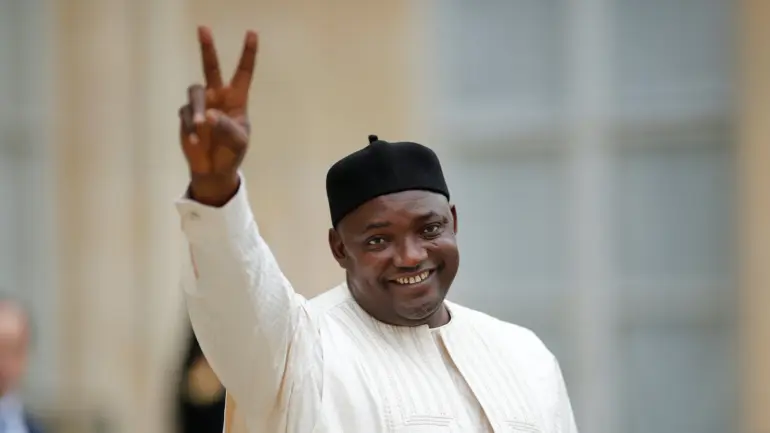The Gambia will hold its next presidential election on December 5, 2026, officials announced Thursday, as President Adama Barrow’s bid for a third term sparks growing criticism.
Barrow surprised many earlier this year by declaring his intention to seek a third term. While the 1997 constitution permits this, it was widely assumed he would not pursue it.
When Barrow was first elected in 2016, there was hope for a new constitution introducing presidential term limits. However, a 2020 draft constitution containing a retroactive two-term limit clause—effectively barring Barrow from running again—was rejected by Barrow-aligned lawmakers.
A second draft, which removed the retroactive clause, was also rejected by the legislature in July.
Barrow’s decision to run under his National People’s Party has drawn criticism domestically and internationally. The opposition’s largest party, the United Democratic Party, last month nominated veteran politician Ousainou Darboe as its presidential candidate.
Despite this, Barrow is widely favored to win, as the opposition remains fragmented and lacks a united front.
Joseph Colley, chairman of The Gambia’s Independent Electoral Commission (IEC), confirmed the presidential election date and announced parliamentary elections will be held on April 10, 2027. He reiterated the IEC’s commitment to transparency, inclusion, and strict adherence to electoral laws, urging political parties to comply with registration rules.
The December 5 election date aligns with The Gambia’s established electoral calendar under the current constitution, which dates back to 1997. That constitution enabled former ruler Yahya Jammeh to consolidate power following his 1994 coup.
Jammeh’s 22-year rule was marked by widespread human rights abuses and alleged misappropriation of state funds. He fled to Equatorial Guinea in 2017 after losing to Barrow—then a political outsider—who peacefully assumed power.


